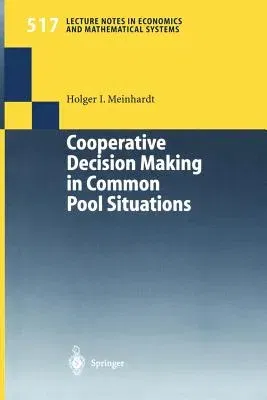Holger I Meinhardt
(Author)Cooperative Decision Making in Common Pool Situations (2002)Paperback - 2002, 25 March 2002

Qty
1
Turbo
Ships in 2 - 3 days
In Stock
Free Delivery
Cash on Delivery
15 Days
Free Returns
Secure Checkout
Part of Series
Lecture Notes in Economic and Mathematical Systems
Part of Series
Lecture Notes in Computer Science
Part of Series
Lecture Notes in Control and Information Science
Print Length
210 pages
Language
English
Publisher
Springer
Date Published
25 Mar 2002
ISBN-10
3540432957
ISBN-13
9783540432951
Description
Product Details
Author:
Book Edition:
2002
Book Format:
Paperback
Country of Origin:
US
Date Published:
25 March 2002
Dimensions:
23.39 x
15.6 x
1.17 cm
ISBN-10:
3540432957
ISBN-13:
9783540432951
Language:
English
Location:
Berlin, Heidelberg
Pages:
210
Publisher:
Series:
Weight:
312.98 gm

